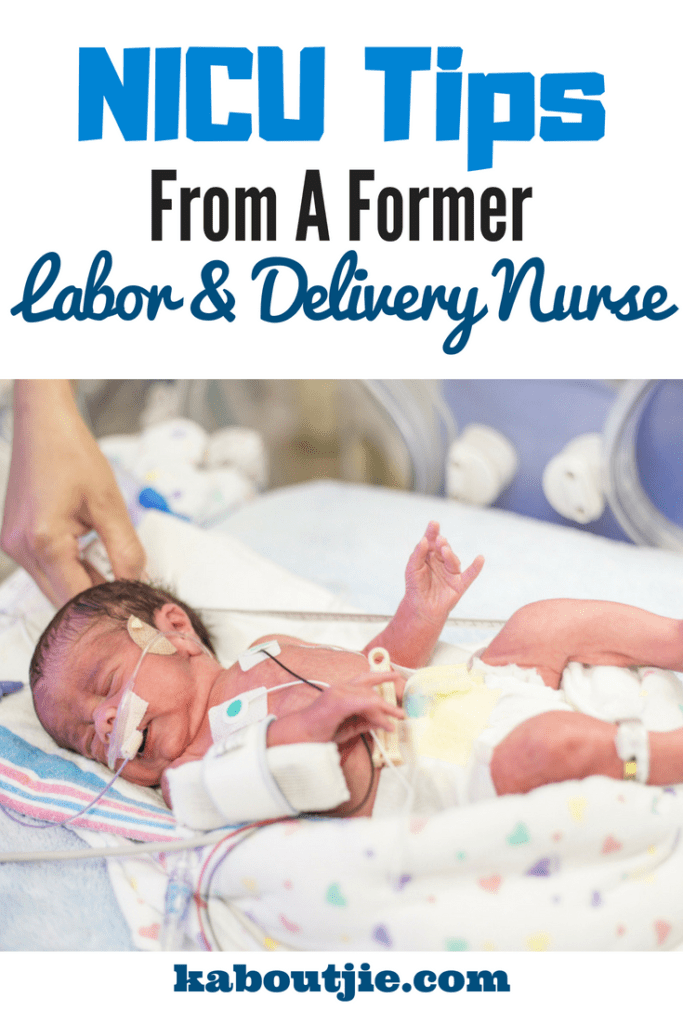Having a baby in the NICU can be overwhelming. Here’s some advice from a former Labor & Delivery nurse on how to get through it.
The experience of having a premature or sick baby can be extremely stressful, and the NICU environment can seem very overwhelming. Parents often find themselves feeling confused about the state of their babies’ health, and unsure of how they can best help them. Here are just a few tips on coping with a NICU stay, from a former neonatal nurse:

- Don’t be afraid to ask questions. A very important part of NICU doctors’ and nurses’ jobs is making sure that parents understand their babies’ diagnoses and are active participants in decisions about treatment options. They cannot properly do this without taking the time to carefully answer any and all questions that parents have. Parents should understand that it is their right to ask absolutely as many questions as they want, even if they seem ‘annoying.’
- Know that as the parent of a patient, you have certain fundamental rights. Among others, these include the right to ask questions and have things explained to you in a way that you can understand (if English isn’t your first language, you should be provided a translator), the right to visit your baby, and the right to get a second opinion from another medical professional.
- Learn who the people caring for your baby are. There are many different types of medical professionals who work in the NICU. You may encounter the attending neonatologist, who supervises care within the NICU, as well as other types of physicians. Nurse practitioners and physician assistants are mid-level providers, who can perform certain procedures, but ultimately defer to neonatologists and physicians. Residents are doctors in training. They have graduated from medical school, but lack the work experience that a physician has. They are supervised by more senior personnel.
- Understand NICU confidentiality rules. Unlike other hospital environments with private rooms, the NICU is usually set up as an open bay with many babies in one room (unless they need to be in isolation for infection control or other reasons). Because the NICU is so open and it is easy to hear what others are saying, parents are not allowed to visit during ‘rounds,’ which is when the medical team visits babies and discusses care plans. The reasoning behind this rule is that parents may overhear information pertaining to another family’s baby, which would be a violation of HIPAA, a law that guarantees patient privacy.
- Consider asking to speak to a social worker. Social workers can help improve communication between doctors and parents, and will also follow up with you once your baby is discharged. They can help with navigating complex systems such as insurance and special education.
Finally, it is important for parents to take care of themselves while their baby is in the NICU. The experience can bring up a lot of emotions – fear, anger, some parents even report a sense of guilt – and you should know that you are not alone in processing these feelings. There are many support groups and mentorship programs for parents of NICU babies, as well as counseling options. Many parents continue to need help processing their emotions after their babies have been discharged, either because their babies experience additional health scares, or because the parents have symptoms of PTSD. There is no shame in seeking help; in fact, taking care of yourself will help you to more effectively look after your baby.
To read more NICU tips on coping, advocacy, and more, visit us here.
About the Author
A. Shea is a mom to four children (two babies admitted to the NICU), a former labor and delivery nurse, and an investigative legal nurse.
 Kaboutjie SA Mommy Blogs by Lynne Huysamen
Kaboutjie SA Mommy Blogs by Lynne Huysamen





Really helpful. I will keep these in mind.